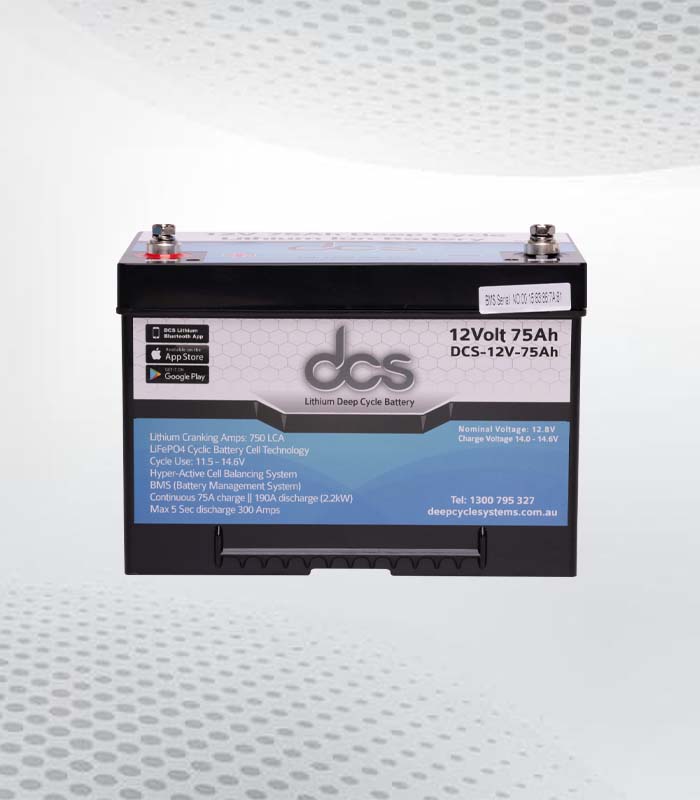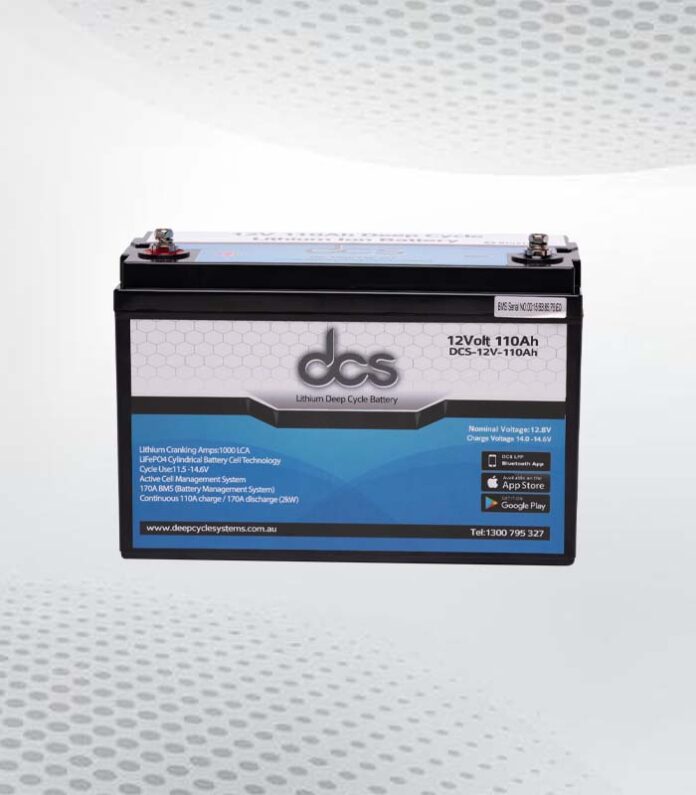Using two 12v Batteries In Series can be a great way to increase the power and energy available for whatever application you need. There are both pros and cons associated with that approach, and it is important to consider all of them before making a decision. That blog post, will explore the advantages and disadvantages of using two 12-v Batteries In Series, so that you can decide if it is the right approach for you.
Understanding The Basics Of Two 12v Batteries In Series
When it comes to using Two 12v Batteries In Series, it’s essential to have a clear understanding of the basics. Essentially, connecting batteries in series means connecting the positive terminal of one battery to the negative terminal of another battery. That arrangement allows for an increased voltage output. By connecting the batteries in series, the voltage adds up. For example, if you connect two 12-v Batteries In Series, you’ll get a total output of 24 volts. That can be advantageous in various applications where a higher voltage is required, such as powering motors or appliances that demand more energy.
It’s important to note that while the voltage increases, the overall capacity remains the same. So, if each individual battery has a capacity of 100 amp-hours (Ah), when connected in series, the total capacity will still be 100 Ah. That method can be useful in situations where you need to power equipment or devices that require a higher voltage to operate efficiently. It can also be helpful in maximizing the power available for certain applications, such as solar or off-grid power systems.
However, it’s important to consider the limitations of using batteries in series. One disadvantage is that if one battery fails, it can impact the entire series circuit. Additionally, using multiple batteries in series can increase the complexity of the system, requiring additional maintenance and monitoring.
The Benefits Of Using Two 12 Volt Batteries In Series
Using Two 12 Volt Batteries In Series offer several benefits that can greatly enhance the power and performance of your electrical system. One of the main advantages is the increased voltage output. By connecting the batteries in series, you effectively double the voltage, providing a higher power supply for your devices or equipment. That is particularly useful in applications that require a higher voltage, such as running motors or powering appliances that demand more energy.
Another benefit of using two 12-v Batteries In Series is the ability to maximize the power available. That can be especially valuable in off-grid or solar power systems, where every bit of energy counts. By increasing the voltage, you can ensure that your system has the necessary power to function efficiently and meet your energy demands.
Considerations for Setting up 4 12v Batteries In Series
When setting up 4 12v Batteries In Series, there are several important considerations to keep in mind. First and foremost, it is crucial to ensure that both batteries have the same capacity and age. That is because if one battery is weaker or has a lower capacity than the other, it can lead to an imbalance in the system and reduce overall performance. Additionally, using batteries of different ages can result in one battery deteriorating faster than the other, leading to a shorter lifespan for the entire system.
Another important consideration is the physical space required for the batteries. Two 12-v Batteries In Series will take up more space compared to a single battery, so it’s important to make sure you have enough room to accommodate them. That includes considering the dimensions and weight of the batteries, as well as any necessary ventilation or cooling requirements.
Additionally, it’s important to be aware of the limitations and risks associated with using batteries in series. If one battery fails, it can affect the entire series circuit, potentially leaving you without power. Regular monitoring and maintenance are essential to prevent any issues and ensure the system is functioning properly.
Tips For Maintaining Two 12-v Batteries In Series
Proper maintenance is essential to ensure the optimal performance and longevity of your two 12-v Batteries In Series. Here are some tips to help you maintain your batteries:
- Regularly check the battery voltage: Keep an eye on the voltage of each battery in the series. That will help you identify any issues early on and prevent potential damage. Use a voltmeter or a battery monitor to measure the voltage regularly.
- Balance the batteries: It is important to balance the charge of each battery in the series. Charging or discharging one battery more than the others can lead to an imbalance, reducing the overall performance and lifespan of the batteries. Use a battery balancer or equalizer to ensure an even distribution of charge.
- Monitor temperature: Batteries can be sensitive to extreme temperatures. Avoid exposing them to excessive heat or cold as it can affect their performance and shorten their lifespan. Consider installing a temperature monitoring system to keep track of the battery temperature.
- Clean and inspect regularly: Keep your batteries clean and free from dirt and corrosion. Check the terminals for any signs of damage or loose connections. If necessary, clean the terminals using a battery terminal cleaner and apply a corrosion inhibitor to prevent future buildup.
Alternatives To Using Two 12-v Batteries In Series
If using two 12-v Batteries In Series doesn’t seem like the right option for you, there are alternative solutions you can consider. One alternative is using a single high-voltage battery instead. That eliminates the need for connecting multiple batteries and reduces the complexity of the system. High-voltage batteries, such as 24V or 48V batteries, are designed to provide a higher voltage output, making them suitable for applications that require more power.
Another alternative is using a voltage converter or inverter. These devices can convert the voltage from a single 12V battery to a higher voltage output. That means you can still achieve the desired voltage without the need for multiple batteries in series. However, it’s important to note that using a voltage converter or inverter may introduce some inefficiencies, as energy is lost during the conversion process.
Additionally, you may also consider using a different battery technology, such as lithium-ion batteries. Lithium-ion batteries have a higher energy density and can provide a higher voltage output compared to traditional lead-acid batteries. They are also more lightweight and have a longer lifespan, making them a popular choice for various applications.
Features
Looking to double your energy? Using two 12-v Batteries In Series comes with some impressive features that can greatly enhance the power and performance of your electrical system. One key feature is the increased voltage output. By connecting the batteries in series, you effectively double the voltage, providing a higher power supply for your devices or equipment. That is particularly useful in applications that require a higher voltage, such as running motors or powering appliances that demand more energy.
Another feature of using two 12-v Batteries In Series is the ability to maximize the power available. That can be especially valuable in off-grid or solar power systems, where every bit of energy counts. By increasing the voltage, you can ensure that your system has the necessary power to function efficiently and meet your energy demands.
Furthermore, connecting batteries in series allows you to maintain the same overall capacity while increasing the voltage. That means that you can enjoy the benefits of higher power without sacrificing battery life or runtime. So, if each individual battery has a capacity of 100 Ah, when connected in series, the total capacity remains at 100 Ah. Overall, the features of using two 12-v Batteries In Series provide a significant boost in voltage and power, making it an attractive option for various applications that require increased energy.
 FAQs
FAQs
Q: Can I use batteries of different capacities in series?
A: It is not recommended to use batteries of different capacities in series. When batteries of different capacities are connected in series, the overall performance and lifespan of the batteries can be negatively impacted. It can lead to an imbalance in the system, with one battery being discharged faster than the others. That can result in reduced capacity and overall performance. It is best to use batteries with the same capacity and age to ensure optimal performance.
Q: Can I connect more than two 12-v Batteries In Series?
A: Yes, you can connect more than two 12-v Batteries In Series. Connecting more batteries in series will further increase the voltage output. However, it is important to consider the limitations and risks associated with using multiple batteries in series. That includes ensuring that all batteries have the same capacity and age, as well as regularly monitoring and maintaining the batteries to prevent any issues.
Q: Can I use two different brands of 12-v Batteries In Series?
A: It is generally recommended to use batteries of the same brand when connecting them in series. Different brands may have variations in specifications, capacity, and performance, which can lead to imbalances in the system. However, if the batteries have similar specifications and are compatible in terms of voltage and capacity, it may be possible to use different brands. It is important to thoroughly research and ensure compatibility before connecting batteries of different brands in series.
Q: Can I use 12-v Batteries In Series for my solar power system?
A: Yes, using 12-v Batteries In Series can be beneficial for a solar power system. By increasing the voltage output, you can maximize the power available for your solar system, allowing it to function more efficiently. However, it is important to consider the specific requirements of your solar power system and consult with a professional to ensure that using batteries in series is the right approach for your setup.
Q: How long can two 12-v Batteries In Series last?
A: The lifespan of two 12-v Batteries In Series can vary depending on various factors, including the quality of the batteries, usage patterns, and maintenance practices. With proper maintenance and care, 12-v Batteries In Series can last several years. Regular monitoring, balancing the charge, and following proper charging and discharging practices can help prolong the lifespan of the batteries.
Conclusion
In conclusion, using two 12-v Batteries In Series can be a powerful solution to increase the voltage and power available for your electrical system. By connecting the batteries in series, you can effectively double the voltage output, making it ideal for applications that require a higher voltage, such as running motors or powering energy-demanding appliances. The benefits of using two 12-v Batteries In Series include maximizing the power available, maintaining the same overall capacity, and enhancing the performance of off-grid or solar power systems. However, it is important to consider the considerations and maintenance tips associated with that setup, such as using batteries of the same capacity and age, monitoring voltage levels, and regularly inspecting and cleaning the batteries.
